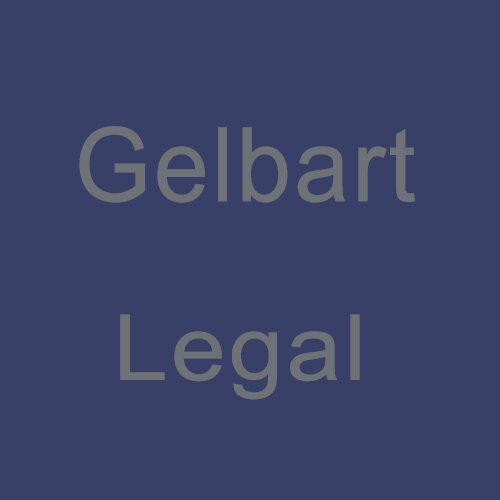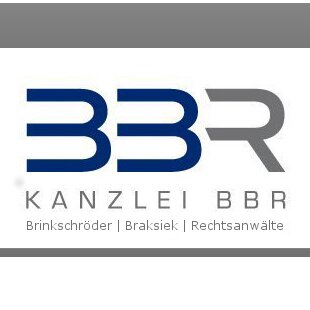Best Corporate & Commercial Lawyers in Germany
Share your needs with us, get contacted by law firms.
Free. Takes 2 min.
Or refine your search by selecting a city:
List of the best lawyers in Germany
Germany Corporate & Commercial Legal Questions answered by Lawyers
Browse our 1 legal question about Corporate & Commercial in Germany and read the lawyer answers, or ask your own questions for free.
- I want to ask about how to formalize partnership deed
- My partner and I are from Pakistan but he has a business in Germany which is over 10 years. I want to join him as a partner in his company and I want to formalize our relationship. What are the necessary things I must do to achieve that and what... Read more →
-
Lawyer answer by Streiff Law - your International Business Law firm from Berlin
Hi, Thanks for your question. The answer and the form, process and documents of participation depend on the type of company your partner owns. Is it a GmbH/UG, a KG or a single entrepeneruship? Best regards, Daniel Streiff
Read full answer
About Corporate & Commercial Law in Germany
Corporate and commercial law in Germany encompasses the rules and regulations that govern how businesses are formed, managed, and operated. This legal field covers company formation, mergers and acquisitions, partnerships, corporate governance, business contracts, and regulatory compliance. Germany is known for its strong legal structure and comprehensive business environment, making it a popular destination for domestic and international companies. Navigating these laws effectively ensures both legal compliance and the smooth operation of your business.
Why You May Need a Lawyer
Engaging a lawyer experienced in German corporate and commercial law can be essential for a variety of reasons. Common situations include:
- Starting or incorporating a new company in Germany
- Drafting and negotiating commercial contracts
- Mergers, acquisitions, and disposals of businesses
- Joint ventures and shareholder agreements
- Restructuring or insolvency proceedings
- Compliance with German and EU regulations
- Employment law matters relating to corporate transactions
- Dispute resolution and litigation concerning business matters
A qualified lawyer helps protect your interests, reduces legal risks, and ensures that you comply with all applicable laws.
Local Laws Overview
Key aspects of German corporate and commercial law include:
- Company Types: The most common company structures are GmbH (limited liability company), AG (public limited company), and partnerships. Each has different formation requirements and obligations.
- Corporate Governance: German law sets strict requirements for management and supervision of companies, including mandatory boards in certain company types and clear reporting duties.
- Contracts: Contracts in Germany are generally binding and require clear, written agreements, especially in commercial relationships.
- Regulatory Compliance: Businesses must comply with a range of local and European regulations, including competition law, data protection, employment law, and anti-money laundering rules.
- Mergers & Acquisitions (M&A): M&A transactions must follow specific procedures, with possible requirements for notifications to authorities such as the Federal Cartel Office.
- Taxes: Germany has detailed corporate tax rules, and companies are subject to various tax obligations, including income tax, VAT, and trade tax.
- Dispute Resolution: Commercial disputes are often resolved through courts or arbitration, with specific procedures for enforcement of judgments.
Frequently Asked Questions
What are the main types of companies in Germany?
The most common types are GmbH (Gesellschaft mit beschränkter Haftung - limited liability company), AG (Aktiengesellschaft - public limited company), and various forms of partnerships. Each type has specific requirements and levels of liability.
How long does it take to set up a company in Germany?
Setting up a basic GmbH can generally take between two to six weeks, depending on preparation, document review, and registration with the local commercial register.
Do I need a registered office in Germany?
Yes, German law requires that companies have a registered office address within Germany where official correspondence can be received.
What documents are required to establish a GmbH?
Typically, you need articles of association, a list of shareholders, identification documents, proof of share capital payment, and a notarized deed of formation.
Are there minimum capital requirements?
Yes, for a GmbH the minimum share capital is 25,000 euros. For an AG, it is 50,000 euros. Alternative company forms may have different requirements.
What are the responsibilities of directors in German companies?
Directors must act in the company’s best interest, comply with legal obligations, maintain accurate records, and avoid conflicts of interest. Failure to fulfil these duties can result in personal liability.
How are business contracts enforced in Germany?
Contracts are generally enforceable if they meet legal requirements. Disputes are resolved in civil courts or through arbitration, depending on the contract terms.
What are the main tax obligations for companies?
Companies must pay corporate income tax, trade tax, solidarity surcharge, and VAT on goods and services. Timely and accurate filing is essential to avoid penalties.
What is the role of the notary in company formation?
A German notary oversees the notarization of formation documents, verifies identities, and ensures that all legal requirements are met for registration in the commercial register.
Can foreign investors own German companies?
Yes, German law allows foreign individuals and entities to own shares in German companies, subject to certain requirements and sector-specific regulations.
Additional Resources
For more support and authoritative information on corporate and commercial matters in Germany, consider the following resources:
- Federal Ministry for Economic Affairs and Climate Action (BMWK)
- Local Chambers of Industry and Commerce (IHK)
- German Trade Register (Handelsregister)
- Federal Cartel Office (Bundeskartellamt) for competition matters
- German Bar Association (Deutscher Anwaltverein) for finding legal professionals
Next Steps
If you believe you need legal advice regarding corporate or commercial matters in Germany, consider the following steps:
- Gather all relevant business documents and information about your situation
- Identify your specific legal questions or concerns
- Contact an experienced lawyer who specializes in German corporate and commercial law
- Schedule a consultation to discuss your options and the best way forward
- Follow your lawyer’s advice to comply with all legal obligations and protect your interests
Taking action early and seeking professional advice can help you avoid costly mistakes and ensure your business is set up for success in Germany.
Lawzana helps you find the best lawyers and law firms in Germany through a curated and pre-screened list of qualified legal professionals. Our platform offers rankings and detailed profiles of attorneys and law firms, allowing you to compare based on practice areas, including Corporate & Commercial, experience, and client feedback.
Each profile includes a description of the firm's areas of practice, client reviews, team members and partners, year of establishment, spoken languages, office locations, contact information, social media presence, and any published articles or resources. Most firms on our platform speak English and are experienced in both local and international legal matters.
Get a quote from top-rated law firms in Germany — quickly, securely, and without unnecessary hassle.
Disclaimer:
The information provided on this page is for general informational purposes only and does not constitute legal advice. While we strive to ensure the accuracy and relevance of the content, legal information may change over time, and interpretations of the law can vary. You should always consult with a qualified legal professional for advice specific to your situation.
We disclaim all liability for actions taken or not taken based on the content of this page. If you believe any information is incorrect or outdated, please contact us, and we will review and update it where appropriate.
Browse corporate & commercial law firms by service in Germany
Germany Attorneys in related practice areas.
Browse corporate & commercial law firms by city in Germany
Refine your search by selecting a city.
















